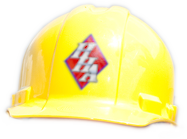source credit: www.depositphotos.com
If you have a traditional forced-air HVAC system, it has both indoor and outdoor components: the air handler/evaporator/furnace that’s located inside, and the compressor/condenser unit that’s situated outside. Half of your system is well-protected from the elements, but since the other half sits fully exposed all year long, you might wonder how rain affects your HVAC unit.
Outdoor HVAC Units Are Designed Durably
HVAC manufacturers know that one half of a split system is going to have to withstand foul weather. They also understand that you shouldn’t have to worry about safety issues from running your HVAC system when it’s raining, so they construct these outdoor units to higher durability standards by:
Sealing internal electrical components like the wiring and connections to shield them from the rain.
Building essential parts from corrosion-proof metals like aluminum and copper.
Extreme Weather Situations Can Pose Problems
While your HVAC equipment is designed to function properly in everyday weather conditions such as rainstorms, there are certain extreme weather situations that can harm or even ruin the outdoor unit:
If the unit gets partially or fully submerged if flooding occurs during a heavy rain, a short in the electrical circuits can damage the wiring, fan motor and electronics.
When lightning strikes near your home and causes a power outage, there’s a higher risk of damage to the outdoor compressor. The hazard isn’t due to the outage, per se, but from the power surge that’s likely to occur when the grid comes back on.
High winds or hail. When a rainstorm is accompanied by high winds, or the atmospheric conditions are just right and falling rain turns into hail, the outdoor unit can sustain impact damage that negatively affects its performance and reliability.
If your outdoor HVAC unit is submerged during a flood, hit by a power surge or damaged by airborne debris or hail, don’t attempt to start it again without having it thoroughly inspected by one of our HVAC technicians.
Call us, we are here to help.
Call (731) 689-3651
source credit: https://bit.ly/328x2DR


